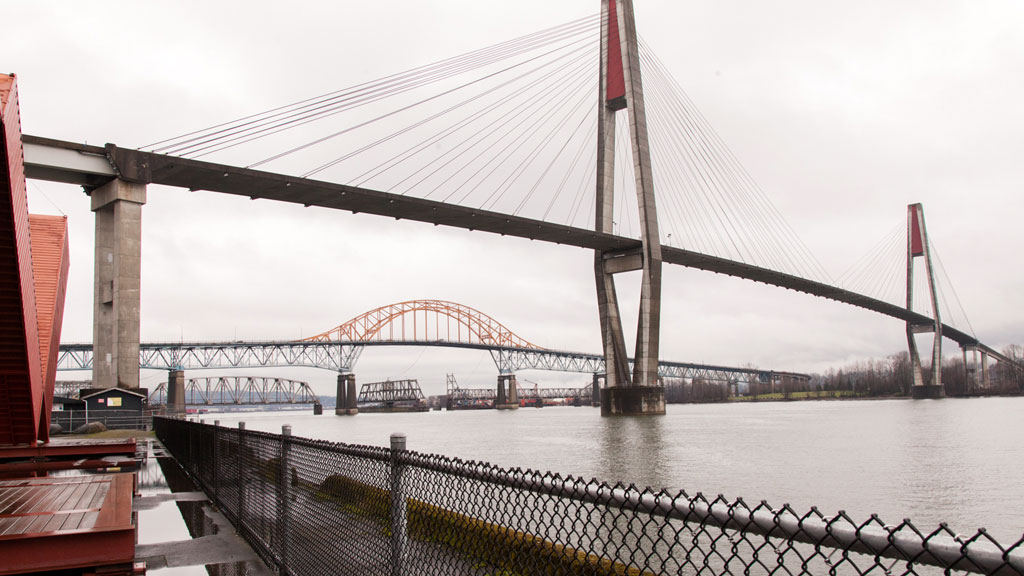Greg Johnson, director of stakeholder relations, gave an overview of the progress being made by BC Infrastructure Benefits (BCIB) during the BC Economic Development Association’s 2021 annual Economic Summit.
Johnson started with a brief history the BCIB and Community Benefits Agreements (CBAs), explaining that during his time working on the Port Mann Bridge Replacement Project the focus was on building a transportation legacy.
“There is a way to build things that goes further by directly investing in communities close to the project,” said Johnson. “A CBA agreement is the tool to do that.”
Johnson explained CBAs are nothing new. They were used on dam projects in B.C. going all the way back to the 1960s.
“Our mandate is to create benefits and the BCIB was created to implement CBAs,” said Johnson. “What is unique about us is that we are the employer. We are responsible for recruiting and training. This makes us accountable for achieving objectives.”
In this role, the BCIB can implement progressive employment policies that aim to lift up underrepresented groups, pour money into B.C. communities and increase the supply of construction labour.
“Priority hiring is at the core,” said Johnson. “We want to give traditionally underrepresented groups access to the trades and connect them with local job opportunities and opportunities to train or up their skills.”
According to the BCIB, the needle hasn’t moved significantly on this front. Only six per cent of B.C.’s construction workers on the tools are women, six per cent are Indigenous and 46 per cent of apprentices don’t complete the certification.
“B.C. has a skilled trade shortage,” said Johnson. “The construction industry has done a tremendous amount of work to diversify the workforce, but the needle hasn’t moved in any major way.”
One of the first projects to be built under BCIB with a CBA will be the Illecillewaet project, which will see improvements to a two-kilometre highway section 30 minutes east of Revelstoke, B.C. Johnson said 46 per cent of work hours on the project are on track to be completed by priority-hired groups, 24 per cent by women and 35 per cent by local hires.
“This is a small project, but we are proud of these numbers and we can ramp that up on bigger megaprojects,” said Johnson.
When it comes to local hires, BCIB has a 100 kilometre radius baseline for what counts as local, but has had to make adjustments. Some major population centres have sat just outside the radius and other times areas outside the radius have been included for economic reasons, like communities hit hard by the downturn in the forestry sector.
“Local is not one-size-fits-all and it is important to sometimes redefine this on a project by project basis,” said Johnson.
One of the main ways BCIB tries to source local labour is by doing its own outreach and recruitment.
Once applicants are in the BCIB network, they can be recommended for other BCIB projects or given support to up their skills.
Recently, much of this outreach and gone virtual due to the pandemic.
“The question we get most often is where we find workers if the industry can’t even find them,” said Johnson.
So far, BCIB has had 2,299 applicants. Nearly 2,000 of them some trades experience and, of those, more than 900 are an apprentice or a trainee.
The BCIB is targeting 25 per cent apprentices or trainees in its workforce to help supply the industry with the next generation of skilled workers.
“Those numbers really matter,” said Johnson. “There are people who want to work on these projects. These are people who want to be in the trades and they are local. They want to live and work locally.”
However, this can be challenge. Johnson explained some projects are too dangerous to have high numbers of apprentices, so it must be adjusted.
BCIB projects currently include improvements to Highway 1, replacing the Pattullo Bridge and the Broadway Subway Line. Johnson said more are on the way.
Follow the author on Twitter @RussellReports.









Recent Comments
comments for this post are closed